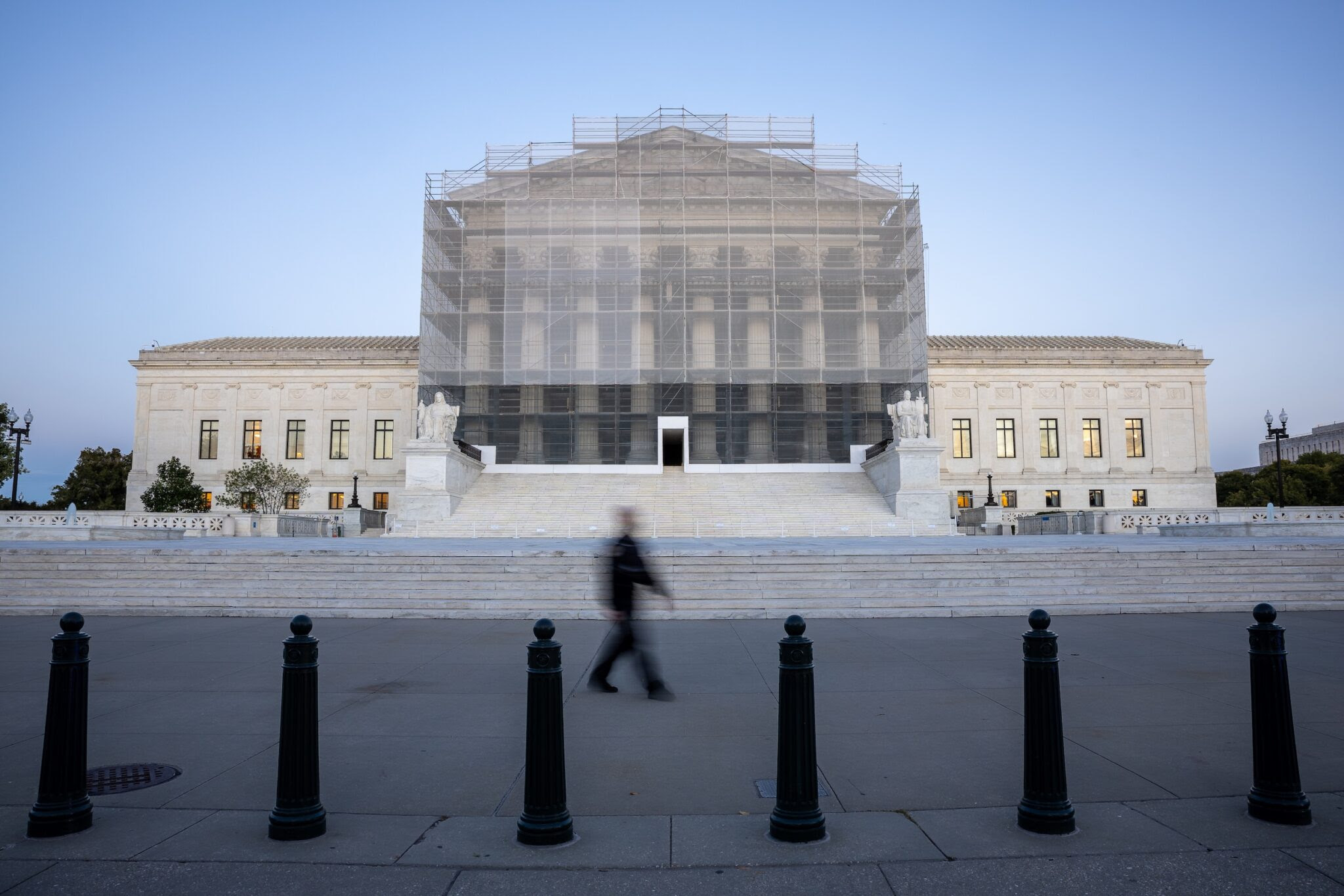
Pulitzer Prize–winning author Jon Meacham spoke at Woodmont Christian Church last week in an event co-hosted by Voices for a Safer Tennessee (Safer TN). During the discussion, Meacham suggested that firm beliefs about firearms are often rooted in understandable concerns about safety and whether our country is providing stability — concerns that may be heightened for young people who have lived through years of school shooting drills. Research shows these drills increase anxiety and depression. Yet Meacham sees hope, as do we. Reasonable safety measures that balance constitutional rights with responsible gun ownership can save lives … and drive our work.
1-What We’re Tracking: When ‘children practice being shot’ in school and church

Nearly 550 people tuned into a conversation with Pulitzer Prize–winning author and native Tennessean Jon Meacham last Wednesday night. Hosted by Woodmont Christian Church in Nashville and its Senior Pastor, Dr. Clay Stauffer, the event focused on the rise of political violence in America and how people of faith can respond to extremism, mass shootings, and the growing threat of violence in public life.
“We have two or three generations of children who have been told they need to practice being shot at in their classrooms or in their church,” said Meacham. “What do we say to [these generations] about trusting us?” He noted that while previous generations who faced the threat of attack, like nuclear war, ultimately emerged from that darkness while today’s youth have not and may never.
Meacham also highlighted the work of Safer TN and Woodmont Christian Church in fostering common ground and safety.
“If a safety measure like the ones [Safer TN] advocates can save a single life, a single one, it seems to me the Bible tells us something about the single lost sheep and the Prodigal Son,” Meacham said. “It matters.”
You can watch the full recording here. Clips from the talk will also be available on our social media.
2-What We’re Tracking: Family members can now ask judges to temporarily transfer a firearm in Maine

Maine, long a Second Amendment–friendly state, has adopted a new law that allows family and household members to petition a court, with due process, to limit access to firearms for someone who poses a danger to themselves or others.
Voters approved the law two years after the state’s deadliest mass shooting. It builds on Maine’s current law, which allows only law enforcement to initiate a temporary firearm restriction. That process requires protective custody and a mental health evaluation before a judge can act, while the new law offers a more immediate option for urgent threats. How the two laws will work together remains to be seen, but they may serve different needs depending on the situation.
Nearly half of U.S. states have similar laws, which research shows have reduced firearm deaths in at least Florida, Indiana, and Connecticut. Safer TN supports pursuing a Tennessee version that protects constitutional rights while saving lives.
3-What We’re Tracking: Glock redesigns its guns

Glock, the country’s most popular handgun maker, announced it will discontinue most of its current pistol models. The models have been banned by California, and the company has been the target of lawsuits because they can be easily converted into automatic firearms using a device called a Glock switch.
The move is widely seen as a response to mounting lawsuits and new state laws banning certain Glock models. As you may recall, Safer TN successfully advocated for a state ban on Glock switches during the 2025 legislative session.
4-What We’re Tracking: The Supreme Court and the Second Amendment

The U.S. Supreme Court is taking up two major gun cases this term. While one case won’t likely affect Tennessee, the other could.
According to Jennifer Hellmer, an attorney and founding member of Safer TN, the first case, Wolford v. Lopez, challenges whether states can ban firearms on private property that is open to the public unless owners give explicit permission. Tennessee already leaves that decision to property owners, and past efforts to limit their ability to prohibit firearms have failed, so this ruling is unlikely to change state law.
This progress is heartening and underscores that change is possible. But every firearm death remains a tragedy, and most are preventable. These data remind us that our collective efforts matter and that continued education, secure storage, and evidence-based policy can help sustain and build on this momentum toward a safer Tennessee.
The second case, United States v. Hemani, could have implications in Tennessee. Under federal law, gun possession is banned for people addicted to or using illegal drugs, but Tennessee’s state law is narrower: the state prohibits handgun possession when someone is actively under the influence. If the Supreme Court narrows the federal standard, it could possibly allow possession by people who, while not intoxicated at the moment, are struggling with substance use disorder — a group more at risk for firearm injury and death.
The Court’s decisions are expected by July.
5-What We’re Tracking: Reducing firearm tragedies in the next 15 years
In March 2025, the Journal of the American Medical Association Summit brought together experts in medicine, public health, law, and community violence intervention to develop a roadmap for reducing firearm violence by 2040. The recently published report highlights evidence-based strategies to reduce firearm tragedies.
Some of these strategies could be applied in Tennessee today, such as promoting secure firearm storage through education and affordable options, and establishing a temporary firearm transfer process that ensures due process for individuals who pose a risk to themselves or others. The report also recommends community violence intervention programs, environmental improvements like better street lighting, and increasing police resources.







